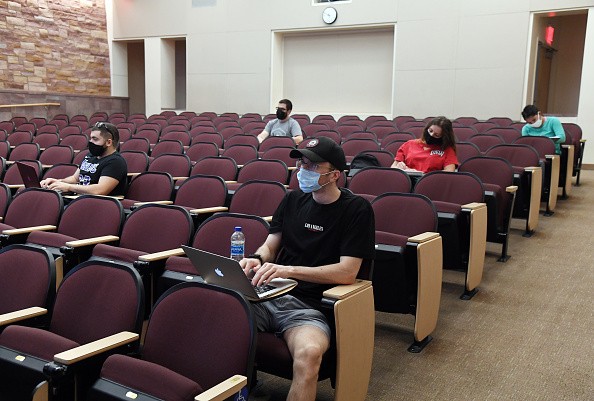COVID-19 Safety Protocols May Delay Future Outbreaks of Flu and Other Respiratory Illnesses, Study Shows
A new study by Princeton University researchers showed that safety measures for COVID-19 may delay future outbreaks of flu and other respiratory illnesses.

According to Big Think, the nature of seasonal illnesses also means that avoiding them may just put it off and lead to a massive wave later.
The proven effectiveness of face masks in reducing the rate and risk of COVID-19 infection continues being underutilized even as the country continues to struggle with the pandemic.
Generally, lower disease and transmission rates have been seen in places that implemented mask-wearing and social distancing mandates than those without the said protocols.
However, the study of Princeton showed other threats to live-saving mask mandates. A team of researchers revealed that the steps that officials are implementing to prevent the spread of COVID-19 might lead to larger outbreaks of seasonal diseases, given that many other conditions follow predictable cycles.
Read also: Does Everything You Drink Smells Like This? You Might Have Coronavirus, Experts Say
In the Proceedings of the National Academy of Sciences, a published study of Princeton showed the predictions of a model that estimates the following effects of current efforts to prevent the spread of COVID-19.
Non-pharmaceutical interventions (NPIs), including wearing masks and social distancing, help prevent not just the coronavirus. Some of these diseases are flu and respiratory syncytial virus (RSV), lower than they would be as people take these precautions. As many as 20 percent of cases of RSV may have already declined.
Study Finds reported that the study observed historical data on RSV cases to see how social distancing policies amid the coronavirus pandemic may affect North America's upcoming outbreaks.
The results show that observing these safety guidelines may spark a large RSV outbreak in the future even in a short period of time.
Researchers said that a projected outbreak would be delay until after the public ends its NPI practices, with the peak cases projected to hit in winter of 2021-2022.
First author Rachel Baker in a university release warned that "it is crucial to prepare for this possible future outbreak risk and to pay attention to the full gamut of infections impacted by COVID-19 NPIs."
The study authors investigated the impacts of social distancing on a seasonal flu outbreak. They found that a similar outbreak may occur, but added that predicting flu is harder to do because of the uncertainty surrounding strains of influenza circulating each year.
Baker noted that for influenza, vaccines could make a big difference. The impact of NPIs on the evolution of influenza is unclear but could be very important.
Baker's co-author Bryan Grenfell said the decrease in influenza and RSV cases, and the possible future increase that researchers are projecting, is the broadest global impact of NPIs across various human diseases that they have seen
"NPIs could have unintended longer-term impacts on the dynamics of other diseases that are similar to the impact on susceptibility we projected for RSV," Grenfell noted.
Read also: Earwax Test Could Determine Stress Levels and Risk of Depression
Subscribe to Latin Post!
Sign up for our free newsletter for the Latest coverage!

















